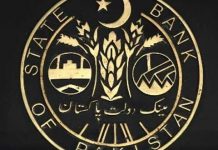In its Mid-Year Budget Review Report for FY2023-24, the Ministry of Finance (MoF) reported that Pakistan’s debt servicing costs have surged by over 64%, outstripping the revenue growth of 30% and reducing development spending to minimal levels.
The report attributes this situation to record-high interest rates influenced by the International Monetary Fund (IMF).
The ministry highlighted that the primary challenge was the rising markup payments due to a high policy rate environment. Interest expenses reached approximately Rs4.2 trillion in the first six months (July-Dec 2023), compared to Rs2.573 trillion for the same period last year, marking a 65% increase.
As per reports, this year’s interest payments are projected to total Rs7.3 trillion, nearly 58% of the full year’s budget estimates.
Consequently, almost 80% of local and international borrowing was consumed by interest payments rather than being allocated to productive sectors.
A significant portion of current expenditure, about 65.3%, was dedicated to interest payments during the July-December period. Of the Rs4.22 trillion spent, Rs3.718 trillion went towards domestic interest payments and Rs502 billion towards external interest payments.
Development fund utilization struggled, with only Rs158 billion spent in the first half of the year, just 16.6% of the annual allocation of Rs950 billion.
According to the government’s fiscal commitment, 50% of the development budget should be disbursed in the first half of the year, but the report revealed that development spending fell significantly short of this target.
The MoF’s report also noted that 88% of the interest payments were directed towards domestic debt. The federal fiscal deficit increased to Rs 2.697 trillion, or 2.5% of GDP, in the first half of the year, compared to 2.1% of GDP, or Rs1.78 trillion, in the same period last year.
Despite these challenges, provincial contributions showed a higher cash surplus of Rs289 billion this year compared to Rs101 billion last year. However, the overall deficit remained at 2.3% of GDP, slightly higher than the previous year’s 2%.






















